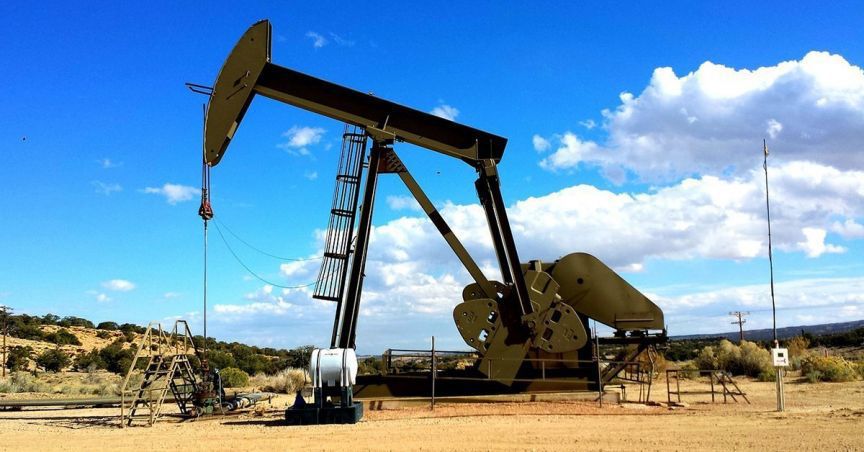The week began with a big swing on the London Stock Exchange, as the LSEâs FTSE 100 index crashed 485 points in a single day on 9th March 2020 after Saudi Arabia started an oil price war with Russia, by slashing oil prices by $6-8 a barrel. The jolted sentiment across the world has turned grave due to escalating worries over spreading deadly COVID-19 infected cases outside China. The flow of back to back headwinds which are restricting global growth in 2020, has led to free fall in the financial markets.
Global benchmark indices of the Wallstreet, the Dow Jones Industrial Average index slumped more than 2000 points or 7.8% in a day, the highest intraday plunge it registered after October 2008 (Financial Crisis). The major S&P 500 index, which gauges stock price movement in the top best 500 companies listed and traded on the New York Stock Exchange (NYSE), slumped about 7.6% to 2,746.56.
UK benchmark Indices at multiyear low: Is it an opportunity or threat?
UKâs FTSE 100 has now lost more than 22% from its 52-week peak level of 7,727.49 and touched the lowest level of 5,891.56 on March 09, 2020, after February 2016 slump. The mid-cap gauge, the FTSE 250 index tumbled more 6% in intraday trading to 17,547.15, a level which was last witnessed in December 2018. The fiasco brewing in the equity market has led many investors to ditch riskier assets and shift to safe haven asset classes.
The market direction was clearly in favour of bears, as about 32 FTSE All-Shares constituent stocks declined for every share rising on the London Stock Exchange.
99 FTSE 100 constituent stocks ended in red territory on the fateful day. Investors were left high and dry, as about 296 stocks registered a new 52-week lows on London Stock Exchange, including several biggies, like Royal Dutch Shell PLC, HSBC Holdings PLC, BHP Group PLC, BP PLC, Diageo PLC, Rio Tinto PLC, Lloyds Banking Group PLC, Prudential PLC, Compass Group PLC, Experian PLC, Anglo American PLC, Barclays PLC, Glencore PLC, Royal Bank of Scotland Group PLC, Associated British Foods PLC, Ashtead Group PLC etc.
In fact, from the overall FTSE All-Share lot, more than 45 stocks plunged over 50% on a YoY basis, and many of them were oscillating near their lifetime lows, like Intu Properties PLC, Tullow Oil PLC, Petra Diamonds Ltd, Ted Baker PLC, Amigo Holdings PLC, Metro Bank PLC, Aston Martin Lagonda Global Holdings PLC, Kier Group PLC, De La Rue PLC, Premier Oil PLC, NMC Health PLC, EVRAZ PLC, McColl's Retail Group PLC, Schroder UK Public Private Trust PLC etc.
Out of these aforementioned stocks which crashed more than 50%, many have historically proven sound financials and strong business model that would help them to regain their market and share, once pandemic is contained or the situation turns smooth; they are available at dirt-cheap prices as of now, many out of these also carry strong fundamental and potential to hand offer better risk-adjusted rate of return in future.
Oil Market FiascoÂ
Investors in the UK market lost billions of dollars yesterday (9th March 2020) as benchmark indices slumped more than 7% in just a dayâs trading session. The Organisation of Petroleum Exporting Countries (OPEC) was unable to fix a deal with its allies, which together are known as OPEC+, with respect to an oil production cut amid declining oil demand, as COVID-19 infected cases started soaring outside the epicentre China.
Hence, going against Russia, who refused to an oil production cut proposal brought forward by OPEC members, Saudi Arabia has opened the oil price war, by reportedly reducing its official oil selling prices for the crude grade to all destination by $6-8/bbl.
Following Saudi Arabia's announcement, the Brent crude oil futures nosedived and declined by more than 32% in a day, the biggest intraday fall since the Gulf War in 1991 and traded at its lowest level since February 2016.
The Coronavirus spread from China has disrupted the world's second-largest economy and oil shipment has plummeted to the largest oil importer "China".
Hence it is a double whammy for the world markets. The death toll because of novel COVID-19 has already surged to around 3800, and more than 1,10,000 infected cases have been confirmed so far. Even though, the cases are gradually slowing in China, from where the virus originated but have been increasing substantially outside China, which has created a catastrophe like situation in the global markets. However, once China returns to normalcy, then the supply side constraints could ease in the next couple of months.
Is it the right time for bargain hunt at LSE?
Every market crash is a great buying opportunity for average investors with long-term goals. The present panic in the stock markets amid coronavirus outbreak and geopolitical rifts over oil price could be a great buying opportunity if history is an indication. In most of past stock market crashes, the market has recovered all of its losses within a couple of months, and whether it was 2008 financial crisis or dot com bust in 2000, our past experience tells us that markets have not only recovered entire losses and eventually touched new all-time highs post a crisis is over. However, past performance is not a guarantee of future returns, but boom and bust are real characteristics of the equity market.
There are many quality businesses with proven strong fundamentals available at dirt cheap prices on the London Stock Exchange. This is the right time to analyse and find out those stocks and bag those for potential robust future gain.
Historically, macro events and any pandemic because of which global markets had meltdown have proven that it provides more lucrative investment opportunities. So, while investing in times when general sentiment is steeply bearish, the right approach should be that one should make investments in a staggered manner so that he can benefit once the rough season is over and without the risk of losing all at once.
Also, the UK marketâs leading index-FTSE 100 is offering a lucrative dividend yield of 5.6%, the second-highest after S&P/ASX 200 among the developed markets, which implies that during the bargain hunt one should also set needle for quality dividend growth stocks as well, with consistent dividend pay-out and growth ratio, with sound cash flow, industry above ROCE and earnings growth over the past five years.
Moreover, stocks in the UK market were already trading at a cheaper valuation against their global peers, and this ongoing distress is lessening the valuation gap between UK stocks and their global peers. However, despite a more or less similar valuation between UK stocks and similar global companies because of global turmoil in the equity market, yield income is significantly higher among FTSE stocks than their global counterparts.





